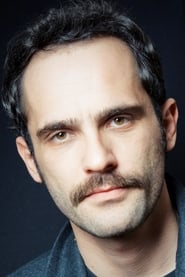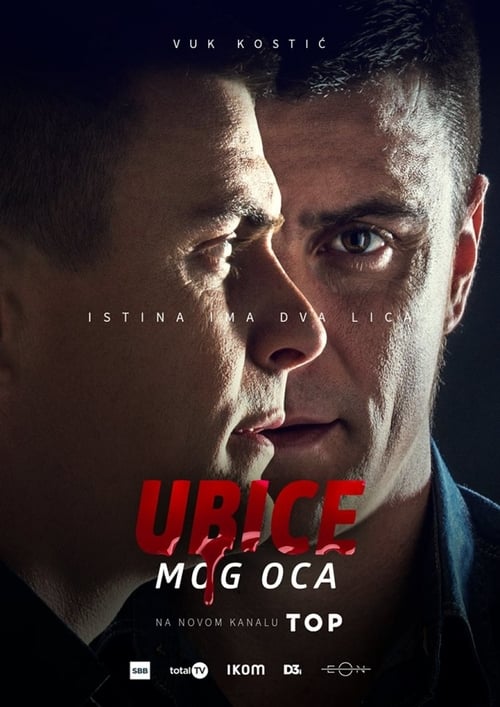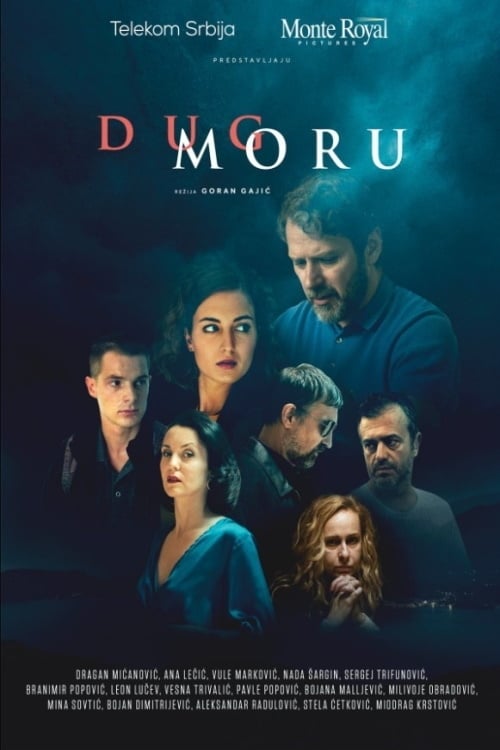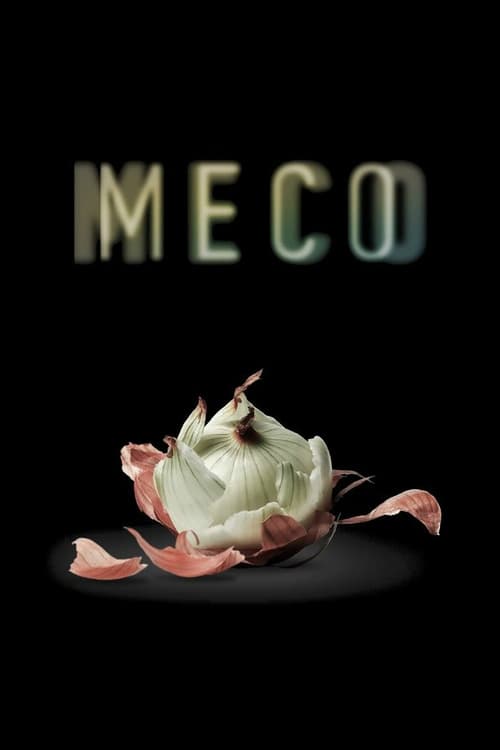
Ask Your Own Question
What is the plot?
In the opening of "Besa," we are introduced to the main character, a man named Mark, who is living a quiet life in the United States. He is a former soldier, haunted by his past experiences in the military. The story begins to unfold as Mark receives a call from his estranged father, who is in Kosovo. His father is in trouble and needs Mark's help, which sets the stage for Mark's journey back to his homeland.
Upon arriving in Kosovo, Mark is immediately confronted with the stark contrast between his life in America and the war-torn environment of his childhood. He meets with his father, who reveals that he is being threatened by a local crime syndicate. The tension escalates as Mark learns that his father has been involved in illegal activities, which complicates their already strained relationship. Mark feels a mix of anger and concern for his father, struggling with the decision of how to help him.
As Mark delves deeper into the situation, he encounters a local journalist named Lira, who is investigating the crime syndicate. Lira is determined and resourceful, and she becomes an ally for Mark. Together, they begin to gather information about the syndicate's operations. During their investigation, they uncover a web of corruption that extends beyond the local crime scene, involving powerful figures in the government.
The plot thickens when Mark and Lira discover that the syndicate is planning a major drug deal that could have devastating consequences for the community. They decide to take action, and Mark's military training comes into play as he devises a plan to thwart the deal. The stakes are raised when they realize that Mark's father is directly involved in the deal, putting him in grave danger.
In a tense sequence, Mark confronts his father about his involvement with the syndicate. The confrontation is emotionally charged, with Mark expressing his disappointment and fear for his father's safety. His father, feeling cornered, reveals that he was trying to protect Mark from the dangers of their past. This revelation adds complexity to their relationship, as Mark grapples with feelings of betrayal and a desire to protect his father.
As the day of the drug deal approaches, Mark and Lira prepare to intervene. They gather a small group of trusted allies, including some of Mark's former military comrades. The plan is to disrupt the deal and expose the syndicate's operations to the authorities. The tension builds as they stake out the location, and Mark's anxiety about the potential fallout grows.
The night of the deal arrives, and the atmosphere is charged with anticipation. Mark and his team execute their plan, leading to a chaotic confrontation. They engage in a fierce fight with the syndicate's members, showcasing Mark's combat skills and strategic thinking. The scene is intense, with close-quarters combat and the sound of gunfire echoing in the night. Mark's determination to save his father and the community drives him forward, even as the danger escalates.
During the confrontation, Mark's father is caught in the crossfire, and Mark must make a split-second decision to save him. He risks his own safety to pull his father to safety, showcasing the depth of their complicated relationship. The fight culminates in a dramatic showdown, where Mark and Lira manage to outsmart the syndicate, leading to their arrest by the authorities.
In the aftermath of the confrontation, Mark and his father have a moment of reflection. They begin to reconcile, acknowledging their past mistakes and the pain they have caused each other. Mark's journey has transformed him, as he learns to confront his demons and embrace his heritage. The season ends with a sense of hope, as Mark decides to stay in Kosovo to help rebuild the community, signaling a new chapter in his life.
What is the ending?
In the ending of "Besa," season 1, the main character, a man named Kreshnik, faces the consequences of his actions as he grapples with his past and the weight of his decisions. The season culminates in a tense confrontation that forces Kreshnik to confront his loyalties and the impact of his choices on those around him. The fates of the characters intertwine, leading to a resolution that highlights themes of honor, sacrifice, and the complexity of human relationships.
As the final episode unfolds, we find Kreshnik in a state of turmoil. He is haunted by the ghosts of his past, particularly the choices he made that have led to the current conflict. The scene opens with Kreshnik standing alone in a dimly lit room, the shadows reflecting his inner struggle. He is torn between his loyalty to his family and the moral implications of his actions. The weight of his decisions presses heavily on him, and the audience can feel the tension in the air.
In the next scene, Kreshnik meets with his childhood friend, who has become embroiled in the conflict. Their conversation is fraught with emotion, as they reminisce about their shared past while grappling with the present reality. Kreshnik's friend urges him to take a stand, to choose a side, but Kreshnik is conflicted. He knows that any decision he makes could have dire consequences for those he loves.
The narrative shifts to Kreshnik's family, who are also caught in the crossfire of the ongoing conflict. His wife, who has been a pillar of strength throughout the season, expresses her fears for their children. She pleads with Kreshnik to find a way to resolve the situation without further violence. Her emotional state is palpable, and the audience can sense the desperation in her voice. Kreshnik's internal struggle deepens as he realizes that his actions will not only affect him but also the future of his family.
As the climax approaches, Kreshnik is faced with a pivotal choice. He must decide whether to uphold the code of honor that has been instilled in him or to break free from the cycle of violence that has plagued his life. The tension builds as he prepares to confront the antagonist, a figure who represents everything Kreshnik has fought against. The confrontation is intense, filled with raw emotion and the weight of their shared history.
In the final moments of the episode, Kreshnik makes his choice. He confronts the antagonist, and their exchange is charged with emotion. Kreshnik's decision is not just about himself; it is a reflection of his desire to protect his family and break the cycle of violence. The scene is visually striking, with the backdrop of a darkened landscape symbolizing the turmoil within Kreshnik.
The resolution comes as Kreshnik's actions lead to a significant turning point. The consequences of his choice ripple through the lives of those around him. Some characters find redemption, while others face the repercussions of their actions. Kreshnik's journey culminates in a bittersweet moment of clarity, where he understands the true meaning of honor and sacrifice.
As the episode closes, we see Kreshnik standing with his family, a sense of peace washing over him. He has made sacrifices, but he has also forged a new path for himself and his loved ones. The final shot lingers on Kreshnik's face, a mixture of relief and determination, as he looks toward the future, ready to face whatever comes next.
In summary, the ending of "Besa" season 1 encapsulates the struggles of Kreshnik and the impact of his choices on his family and friends. Each character's fate is intertwined with Kreshnik's journey, highlighting the themes of honor, sacrifice, and the complexity of human relationships.
Is there a post-credit scene?
In the first season of "Besa," there is no post-credit scene. The series concludes its episodes without additional scenes after the credits, focusing instead on the narrative and character arcs throughout the episodes. The story wraps up its themes and character developments within the main content of each episode, leaving no extra material for viewers to engage with after the credits roll.
What are the key events that lead to the climax of the season?
Key events leading to the climax include escalating tensions between rival gangs, Dritan's increasing involvement in violent confrontations, and the betrayal of a close ally. These events culminate in a dramatic showdown that forces Dritan to confront his choices and the consequences of his actions, ultimately leading to a life-altering decision that impacts his family and his future.
What motivates the main character, Dritan, throughout the season?
Dritan is driven by a deep sense of loyalty to his family and a desire to protect his loved ones. His internal conflict arises from the pressures of his criminal lifestyle and the moral dilemmas he faces as he navigates the dangerous world of organized crime. His emotional state fluctuates between determination to uphold his family's honor and the fear of losing everything he holds dear.
How does the relationship between Dritan and his brother, Luan, evolve in the series?
The relationship between Dritan and Luan is complex and fraught with tension. Initially, they share a bond rooted in their shared past and familial loyalty. However, as the season progresses, Luan's choices and his increasing involvement in the criminal underworld create rifts between them. Dritan's protective instincts clash with Luan's reckless behavior, leading to moments of confrontation and emotional turmoil.
What role does the character of Elira play in Dritan's life?
Elira serves as a pivotal figure in Dritan's life, representing both love and conflict. She is a source of emotional support for Dritan, yet her own ambitions and desires often clash with the dangerous world he inhabits. As their relationship develops, Dritan grapples with the implications of his lifestyle on their future together, leading to moments of vulnerability and tension.
How does the theme of loyalty manifest in the character dynamics throughout the season?
Loyalty is a central theme that manifests in various character dynamics, particularly in the relationships between Dritan, Luan, and their associates. Dritan's unwavering loyalty to his family often puts him at odds with his moral compass, while Luan's loyalty to the gang leads him down a darker path. This theme creates a tension that drives the narrative, as characters must navigate their allegiances and the consequences of their choices.
Is this family friendly?
"Besa," season 1, produced in 2018, contains several elements that may not be suitable for children or sensitive viewers. Here are some potentially objectionable aspects:
-
Violence: The show includes scenes of physical confrontations and violence that may be intense or graphic, depicting the harsh realities of the characters' lives.
-
Crime and Corruption: Themes of organized crime, betrayal, and moral ambiguity are prevalent, which may be unsettling for younger audiences.
-
Emotional Turmoil: Characters experience significant emotional distress, including grief, loss, and betrayal, which could be upsetting for sensitive viewers.
-
Adult Themes: The narrative explores complex adult relationships and moral dilemmas, which may not be appropriate for children.
-
Language: There may be strong language used throughout the series that could be considered inappropriate for younger viewers.
These elements contribute to a mature tone that may not be suitable for all audiences, particularly children.
























